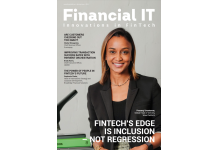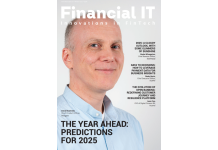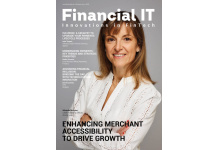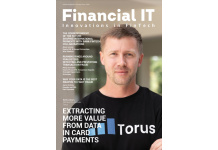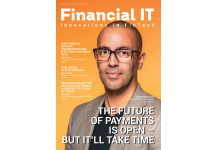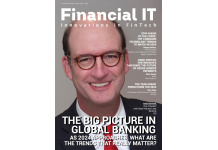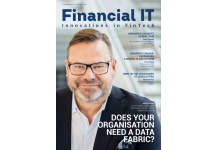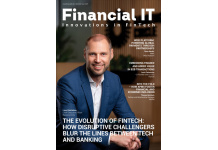Sibos & Money 20/20 Issue

- 09 Oct, 2017 01:00 am
Landmark conferences such as Sibos and Money 20/20 are essential. Among much else, they provide a welcome opportunity to reflect on the state of the global financial services industry and ask: what is really new this year?
There is no doubt where the novelty comes from. The very name of Financial IT highlights how technology is the catalyst for change in financial services. Sometimes the innovations are developed by traditional banks and insurance companies. Other
times, the innovations are developed by technology companies that have no intention of providing financial services. And, of course, there are many instances of disruptive FinTech companies - which seek to supplant traditional institutions.
Nor is there much doubt in relation to what the changes are responding to. In terms of the numbers of people involved, financial inclusion is probably the largest theme globally for the broadly defined financial services industry. The opportunity is to deliver
world class products and solutions to hundreds of millions of people - mainly in developing countries - who have never even had a bank account before.
The opportunity is made greater by the lack of legacy infrastructure in the local banks. As several of the articles in this, and virtually all previous, editions of Financial IT indicate, regulation remains an important driver of change. Regardless of developments in other parts of the world, the European Union’s latest incarnations of the Payments Services Directive (PSD2) and the Market in Financial Instruments Directive (MiFID II) are compelling financial institutions, technology companies and FinTech disruptors to rethink their business models.
As our publisher Chris Principe correctly points out in his letter, a big thing that has altered since Sibos and Money 20/20 in late 2016 is that the pace of change has increased at the intersection of financial services and technology. The cavalcade has accelerated, with the result that virtually all participants at the major conferences need to fill gaps in their knowledge. Relative to the past, the conferences are less about promotion of one’s enterprise and networking, although these are still very important aspects.
Chris is right to highlight 2017’s wave of Initial Coin Offerings (ICOs) as a key development this year for most of the financial services industry, and not just those who are involved with crypto-coins. ICOs represent an opportunity for massive retail participation in the funding of Venture Capital (VC) and Private Equity (PE). This is the latest development in the general movement towards empowerment of individuals - through better services and lower costs - that is embodied in the regulatory changes.
The movement of finance, technology and FinTech towards retail participants is reflected in our decision to cover digital banks in our latest survey of pathfinders in financial IT. To date, much of the development of digital banking has been driven by traditional
institutions - in some cases, in response to the challenges posed by true FinTechs. The main message from our survey is that digital banks are still a new, rapidly growing and fairly under-developed community. Bewilderingly rapid change and massive engagement
of retail clients present huge opportunities for fraud. It is no coincidence that the top story in this edition of Financial IT deals with solutions that combat fraud and financial crimes. As ever, though, a number of our contributors discuss the technology and the infrastructure that underpins the financial services industry at a time that the cavalcade is speeding up and heading towards retail participants.
As ever, we thank our contributors and advertisers and wish everyone success at Sibos and Money 20/20.




